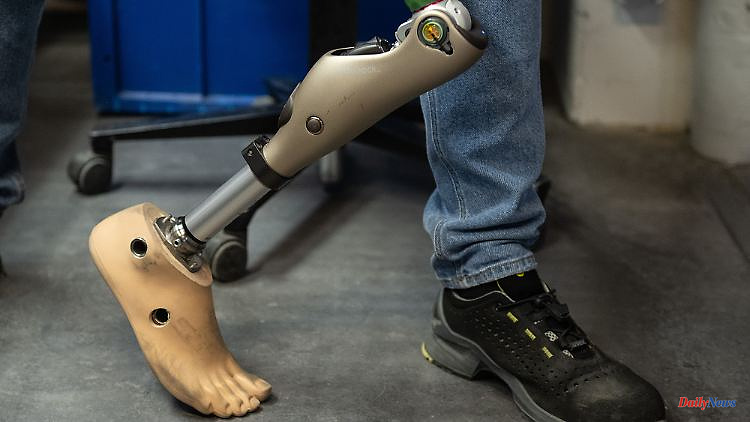15 percent of the world's population has a mental or physical disability. Smart prostheses, orthoses or exoskeletons are more than just an aid for many of these people. Ottobock wants to advance digitization in this area.
Martin Böhm knows many examples of people who, thanks to prostheses, have regained new courage and, above all, freedom. One product that can have such an effect is the mechatronic knee joint, which Ottobock's Chief Experience Manager calls robotic legs. "They are already digital."
Every user has different needs - some often want to ride a bike, others want to go hiking or climb stairs. "The product recognizes this itself, but you can also personalize and adjust the product yourself," says Böhm in relation to the flexibility and customization of the products. But much more will be possible in the future. "The dream of the whole industry is to think about the fact that we can control products with our brains."
Such a prosthesis can sometimes cost as much as a premium car. So it is not surprising that applying to the health insurance company is often not a sure-fire success. "This is one of the biggest hurdles and efforts for users," analyzes Böhm. He remembers a workshop with eleven people where the upper arm had to be amputated. The Ottobock organizers had expected that the most important topic for the participants would be the use of their prostheses. But most of them were concerned with the question of how to get reimbursed for their prosthesis in the first place. "Sometimes there were users who had to fight for it for up to three years."












